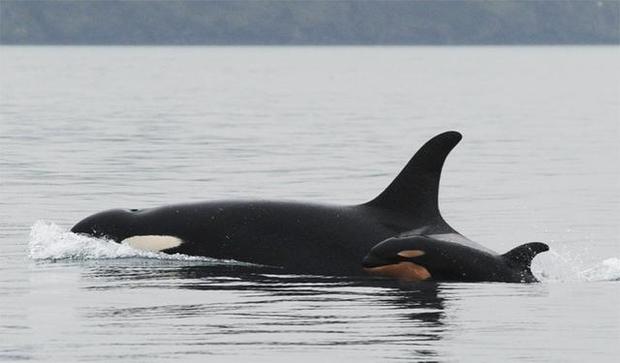forum
library
tutorial
contact

In the King Salmon Debate, We're Ignoring
the 8,000-Pound Orca in the Room
by Andy Wink
Anchorage Daily News, October 26, 2023
|
the film forum library tutorial contact |

|
In the King Salmon Debate, We're Ignoring
by Andy Wink
|
Fishermen and climate change aren't the only challenges
Chinook salmon face in their quest to survive and multiply.
 As we all know, chinook salmon abundance and fish size have been trending downward across Alaska for many years now. The Alaska Department of Fish and Game (ADF&G) has studied the issue intently as part of the Chinook Salmon Research Initiative. Regarding the key question of "what is causing low runs of chinook salmon in Alaska," the initiative concludes the following:
As we all know, chinook salmon abundance and fish size have been trending downward across Alaska for many years now. The Alaska Department of Fish and Game (ADF&G) has studied the issue intently as part of the Chinook Salmon Research Initiative. Regarding the key question of "what is causing low runs of chinook salmon in Alaska," the initiative concludes the following:
Research has shown that during the recent period of poor production, marine survival has dipped below one percent. This decrease in marine survival, even in the face of some very good freshwater production in several systems, has been driving the downturn in overall adult production.ADF&G's research strongly suggests the problem lies in marine-stage survival. So, what's happening? Is it overharvest by humans, climate change, or something else?
In general, human harvest rates of chinook salmon (by commercial, sport, and subsistence fishermen) have fallen sharply over the past decade, yet chinook abundance remains low.
Climate change may be at least partly to blame for declining chinook abundance. Warmer water can alter food chains and increase metabolism, making it harder for salmon to survive or flourish. However, if climate change is the primary driver of poor chinook abundance, doesn't it stand to reason that we would see productivity trends generally improve the further north you go? That hasn't been the case.
Fishermen and climate change aren't the only challenges Chinook salmon face in their quest to survive and multiply. They are preferred prey for several marine mammal species. Given the existing research and trends witnessed over the past decade, we believe more investigation and consideration ought to be given to marine mammal predation -- and this approach is strongly supported by available research. Understandably, we humans are blaming each other for the situation, but in doing so we're ignoring the growing number of 8,000-pound orcas in the room. Consider these findings from recently published research:
We have urged the Alaska Board of Fisheries to consider the ramifications of marine mammal predation research in its own deliberations, and to incorporate this information into broader discussions with the state of Alaska or other state/federal governing bodies. We hope this discussion of the issue will provide the general public with a better understanding of the disappointing chinook salmon situation.
Related Pages:
Alaska 2023 Salmon Harvest Numbers Show HUGE INCREASE IN CATCH Over Last Year by Staff, Columbia Basin Bulletin, 11/3/23
learn more on topics covered in the film
see the video
read the script
learn the songs
discussion forum
